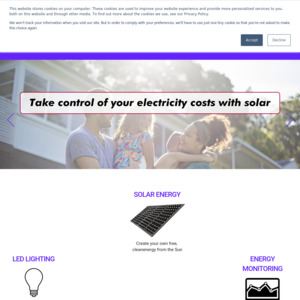Solar & Storage Deal from Eko Energy, Redback & EnergyAustralia's PowerResponse Offer
- All products are Tier 1 and Clean Energy Council Approved
- Get a 6.6kW Solar System using 24 x 275w JA Solar Panels
- With a 5kW Smart Hybrid Redback Inverter & 4.8kWh Battery
- Here is an example quote - https://cdn2.hubspot.net/hubfs/3425759/Ozbargain%20Solar%20&…
- Discounted CASH Price is $12,711 payable by Visa/Mastercard or Bank Transfer
- Or Total FINANCE Price is $17,297 over 7yrs with https://www.ratesetter.com.au/personal-loans/green-loans
The above example quote is based on a single storey, tin roof, no splits, in Melbourne Metro, with a compliant switchboard that doesn't need any additional work i.e switchboard upgrade or single pole enclosure/main switch to be added, on a single phase dwelling. Using on average 20kWh/day at an electricity retailer rate of $0.25c/kWh and a daily supply charge of $1.10/day. Using approx. 40% of your power during daylight hours. With a feed in tariff of $0.10c/kWh. Based on a expected electricity price rise of 8% pa.
Assumes maximum $2,225 eligibility for Solar Vic Rebate. Applications re-open on 1st of July 2019 - For more details and to register for updates - https://www.solar.vic.gov.au/Solar-rebates
For more information on the $1,000 EnergyAustralia Redback PowerResponse offer - https://cdn2.hubspot.net/hubfs/3425759/EnergyAustralia_RedBa…
For a tailored quote to your usage profile, needs and roof profile feel free to email [email protected] or feel free to book in an initial 15-45min telephone consult with me by clicking here - http://info.ekoenergy.co/meetings/kez-hassan1
![[VIC, NSW] 6.6kw Solar System + Redback Smart Hybrid Inverter + 4.8kwh Battery Starting $52 Net Monthly Outgoings @ Eko Energy](https://files.ozbargain.com.au/n/23/451923.jpg?h=25b26c5f)

Redback still exist?